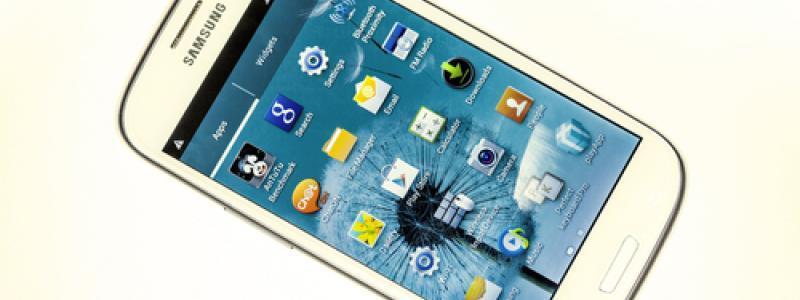Court Orders Samsung To Stop Selling Devices In Violation Of Apple Patents

But wait -- these banned devices are not actually available in the market anymore -- well, mostly. United States District Judge Lucy Koh has decided that Samsung will not be allowed to sell specific models of its smartphones in the US. These handsets were found to be infringing on patents owned by rival phone maker Apple, who had filed for a motion for permanent injunction against a certain number of Samsung smartphones. These include the Admire, the Galaxy Nexus, the Galaxy Note, the Galaxy Note II, the Galaxy S2, the Galaxy S2 Epic 4G Touch, the Galaxy S2 Skyrocket, the Galaxy S3, and the Stratosphere.
Among the smartphones mentioned in the preceding paragraph, one of the most recently released is the Galaxy S3, which historians might point out was the handset that made Samsung king of the global smartphone market for the first time back in 2012. Everybody knows now that there have been a number of newer Galaxy smartphones introduced after the Galaxy S3. And most of the devices listed earlier are no longer to be found among store shelves in America.
Back in May of 2014, Apple was able to get a $119 million verdict against the South Korean phone maker, with the jury ruling that Samsung had indeed infringed on a number of patents owned by Apple, including patents for quick links, slide to unlock technology, and auto correct functionality, among several others. The iPhone maker had initially requested the court to stop Samsung from selling smartphones that make use of those patents, but Judge Koh had decided in August of that year to have Samsung pay only for monetary damages. But in September of last year, the US Court of Appeals for the Federal Circuit found that Samsung should entirely stop selling smartphones using Apple patents altogether.
Such a ruling could have a potentially encompassing effect on future smartphones, especially those mobile devices that come with features and functionalities based on existing patents owned by other companies. Holders of patents could easily prevent other phone makers from releasing their products because of infringement issues.
This is basically what is happening to Samsung now, and other companies have expressed support for the South Korean tech giant regarding its legal battles against Apple. These companies include familiar names such as Facebook, Google, eBay, and Hewlett Packard, among many others. They also want the Supreme Court to find a way to better define design patents so that companies like Samsung will not have to deal with legal rulings that forever prohibit their devices from being released in the market.
Related Blog Articles
- PTel, Including Its Giv Mobile Brand, To Shut Down Effective January 30
- This Year, Spending For Mobile Devices And PCs Will Decline For The First Time Since 2010
- Did Google Pay Apple $1 Billion To Keep Its Search Bar On iOS Devices?
- Snapchat To Have Video, Audio Calling And Stickers Within Its Chat Service?
- Sprint Gains 491,000 Customers During Most Recent Quarter
- Verizon Increases Default Speed Of Its FiOS Internet Service To 50 Mbps
- Smartphone Vendors Shipped A Record 1.43 Billion Units In 2015, Per IDC
- The App Ecosystem Continues To Evolve
- Xiaomi and Meizu Phones Coming To America By Way Of US Mobile
- Apple Patent Proposes An iPhone Display Screen Capable Of Touch-Less Interaction
Related Blog Posts
- Caller ID feature coming to all devices with Google’s Phone app
- Caller ID feature coming to all devices with Google’s Phone app
- Here are the devices that LG will update once it stops its mobile business
- Apple & Google’s Exposure Notification Technology for COVID-19 is ready for use
- Steam to launch apps for streaming videos and games to Android and iOS devices


 Menu
Menu